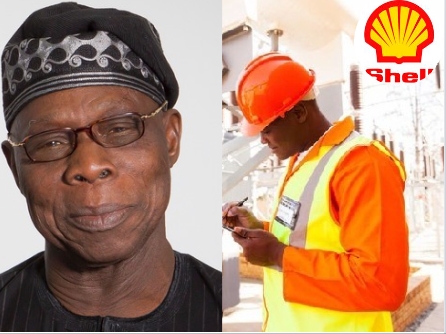Former Nigerian President Olusegun Obasanjo has shed light on why Shell, one of the world’s largest oil companies, has been reluctant to invest in Nigeria’s state-owned refineries.
In a candid revelation, Obasanjo disclosed that during his presidency, he personally extended an invitation to Shell, urging them to take an equity stake and manage the country’s refineries.
However, Shell politely declined the offer, citing two major concerns that have deterred them from getting involved in the refinery business in Nigeria.
The first and most pressing issue, according to Shell, is the pervasive corruption that plagues the management and operation of Nigerian refineries.
They felt that the level of corruption was simply too high and that the refineries were being run and maintained in a manner that was unacceptable to them.
Shell’s executives expressed their unwillingness to be part of “such a mess,” as Obasanjo put it, highlighting their aversion to the corrupt practices that have become entrenched in the refinery sector.
The second reason Shell cited for avoiding investment in Nigerian refineries is the inadequate maintenance of the existing facilities.
They observed that the problems plaguing the refineries have not only persisted but have actually worsened over time.
Shell’s former executive, Malcolm Brinded, further elaborated on this point, stating that building refineries was no longer a profitable venture for the company, which led them to shift their focus to the more lucrative gas sector instead.
Obasanjo’s revelations shed light on the challenges facing Nigeria’s refinery industry and the need for comprehensive reforms to address the issues of corruption and poor maintenance that have deterred major oil companies like Shell from investing in this critical sector of the economy.

